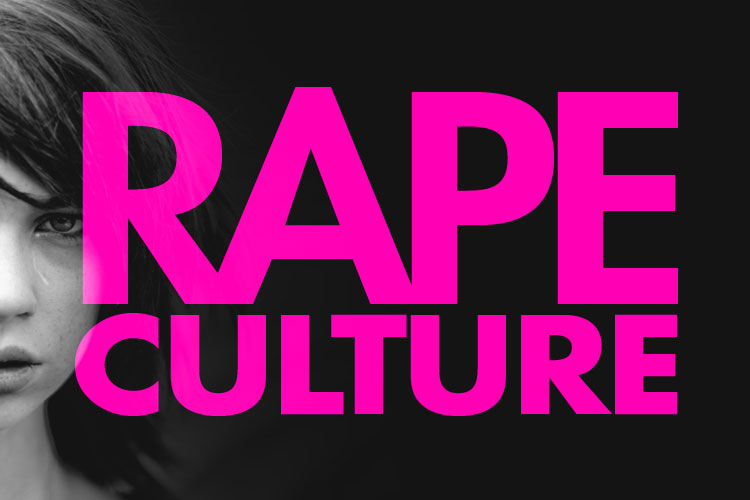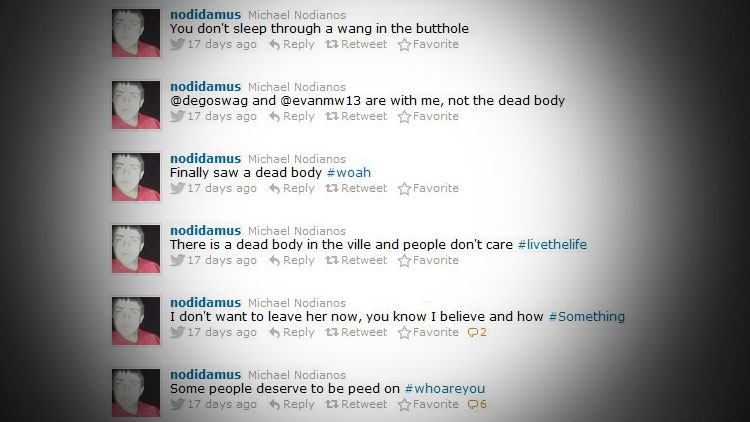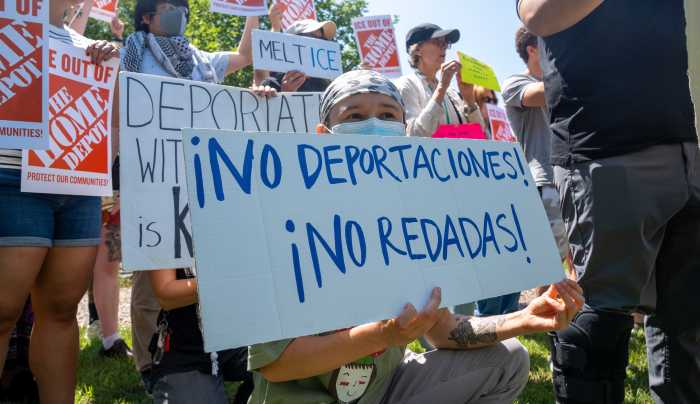Rape culture killed Lizzy Seeberg. It’s why the media chose to focus not on the horrific crime she endured but instead to defend her alleged perpetrator, a precedent set in Steubenville when they decided to lament the loss of two young men’s futures after they raped a girl and posted pictures of themselves on Instagram holding her limp body by the wrist and ankles. Rape culture is the reason why, according to RAINN (Rape, Abuse and Incest National Network), 60 percent of sexual assaults are not reported and 97 percent of rapists never see a day in jail.
Rape culture is a harsh, ugly term appropriate for the harsh, ugly phenomenon that pervades the darkest corners of our society, bleeds into the minds of our children, and spews forth from the mouths of ignorant congressmen, pious college deans, and deified football coaches. In our “first world country” rape is excused, brushed aside or even expected due to the ideologies of our society—the same ideologies that brush women aside, put them in binders, blame them for our eviction from Eden and marginalize their thoughts, actions, and bodies.
Take the Steubenville rape case, where two 16-year-old boys were accused, tried, and found guilty of sexually assaulting and digitally raping a 16-year-old girl while she was intoxicated and unconscious. CNN, in all its veritable news source glory, chose the perplexing stance of universal sympathy for both the perpetrators and the victims. While the newscasters were criticized for their concern over the wellbeing of the aggressors, one can’t help but want to put their fist through a wall when reading the backwards quotes that spewed from Candy Crowley and Poppy Harlow’s mouths, which included lamentations on how “difficult” it was “for anyone in [the courtroom] to watch those boys break down” (Huffington Post). Here is where the baffling rape culture phenomena prevailed yet again—two female news anchors pitied the boys who raped an incapacitated girl, worried about their futures, and continuously aired footage of their families begging for forgiveness.
Rape culture is why Lizzy Seeberg (the religious college freshman from a family of Notre Dame supporters) was deemed the aggressor in a sexually-charged encounter with an ND football player that left her reeling and seeking support. And the barrage of threatening text messages she received afterwards warning her not to “mess with Notre Dame football” was solely because she was the girl who cried rape after feeling shameful of her sexual promiscuity, right? And of course Lizzy killed herself because of her temptress tendencies, not because a man with a history of violent behavior put his hands on her in a way that made her uncomfortable, right? And certainly not because he got away with it, right? The accused (who later publicly revealed himself as Prince Shembo, noted Notre Dame football star and a “complete gentleman” according to his lawyer), was not interviewed by campus police until five days after Lizzy Seeberg’s body was found cold (thedailybeast.com). His stance on the entire affair: “I didn’t do anything. I’m, pretty much, I’m the one who ended it and pretty much told the girl that we should stop, that we shouldn’t be doing this and that’s what happened. So, I don’t know” (ESPN.com).
But why is an issue that pervades every corner of our society rarely spoken of?
Some, to whom I refer as narrow-minded idiots, will say it’s because rape culture doesn’t exist—that it’s just a bunch of sluts who got hopped up on frat-boy punch and are embarrassed that they let someone stick it in their butt, that they need to throw around the rape card to save their dignity, that it’s not a proven set of statistics; it’s women being irresponsible, it’s short skirts, it’s an unclear “no,” it’s “boys being boys.” This widespread ideology is why, in 2005, only 40 percent of colleges surveyed by the National Institute of Justice offered sexual assault training. It’s why only one-third of schools are fully compliant, according to the Clery Act, which requires on-campus crimes to be reported to federal education officials (rainn.org). According to a CDC-issued pamphlet, one in five women experience rape at some point in their lives, and 37.4 percent of women are first raped in their college years, between the ages of 18 and 24. And yet we as a political society preoccupy ourselves with presidential birth certificates and sexual orientation.
Rape culture isn’t being discussed at presidential debates or in the pages of your local newspapers because it has become normalized. It has seeped into our culture and rests in a clandestine, rotting portion of the nation’s subconscious and gushes forth like acidic vomit from the mouths of idiots. Of course those Steubenville boys (Trent Mays and Ma’Lik Richmond) should be pitied for raping an intoxicated 16-year-old, because it’s a classic case of boys being boys, right? And if she really didn’t want to get raped, perhaps she shouldn’t have gotten so drunk, right?
The pictures below include screenshots of the Tweets posted by one of the young men who was present during Mays’ and Richmond’s assault, as well as a picture that was posted on Instagram by another witness depicting the accused holding the obviously incapacitated victim by her wrists and ankles:
(Photo courtesy of: xojane.com)
This ambivalence towards the assault of a young woman, the glorification of sexual assault and the jocular tone adopted by young men in reference to what should be considered a heinous, despicable act are the main contributors to the horrific reality that is the American rape culture.
But wait—maybe those little anecdotes have yet to convince you. Maybe the oversexualization of the female body across all forms of media (television, rap music, video games, gossip rags, college blogs, etc.) hasn’t already proven to you that women have been reduced to objects that are up for grabs and subject to the seemingly never-ending male gaze.
Let’s look at how the word “rape” has evolved in today’s society—plug in your Xbox 360 headset and put in the latest incarnation of Call of Duty and you’ll hear a chorus of “We’re gonna rape” and “I got raped” and “You just got raped” raining down in a torrent of ignorance. But rape is not a word used to describe your dominance over someone in a popular video game. It has a dark, evil meaning and should never be used capriciously—and yet it is.
Sitcoms drop rape jokes that are met with laugh tracks instead of cringing—in the rape-joke filled and criminally unfunny CBS sitcom 2 Broke Girls, Kat Denning’s character Max mocks an annoying girl with this gem: “Somebody date-raped me and I didn’t think I’d live through it, but I did, but now I am stronger, and I’m still needy.” HILARIOUS.
Comedians throw around the word “rape” like ignorant hand grenades, and the genuine laughter of a live audience cradles them in their arms. Two years ago at The Laugh Factory, infamously crude comedian Daniel Tosh was heckled by a female audience member who didn’t find his rape jokes funny and responded with “Wouldn’t it be funny if that girl got raped by, like, five guys right now? Like right now?” Yes, Daniel, that would be the funniest thing ever, and I bet you would air it on Tosh.0, too, and provide us all with your biting wit during a video breakdown of it, as well.
Thumbs up for creativity, Tosh.
We have managed to take a direct assault on the human body, an invasion of a foreign object, an ignorance of a human being’s free will and the complete marginalization of women as equal members of society and turned it into a joke thrown around at frat parties and shouted over headsets during video games.
Rape culture is not a joke. The only way to combat such stupidity is by changing the way our society looks at women and changing how we handle violent masculinity. No more victim blaming, no more shrugging of shoulders and chalking it up to testosterone. Zero tolerance for harassment. Boycott sexually explicit jokes.
The tragedy of Lizzy Seeberg and the assault of the young woman from Steubenville are not unrelated, isolated incidents. They are connected by a thread that represents the very fabric of the gigantic, messed up quilt that is American rape culture.



































